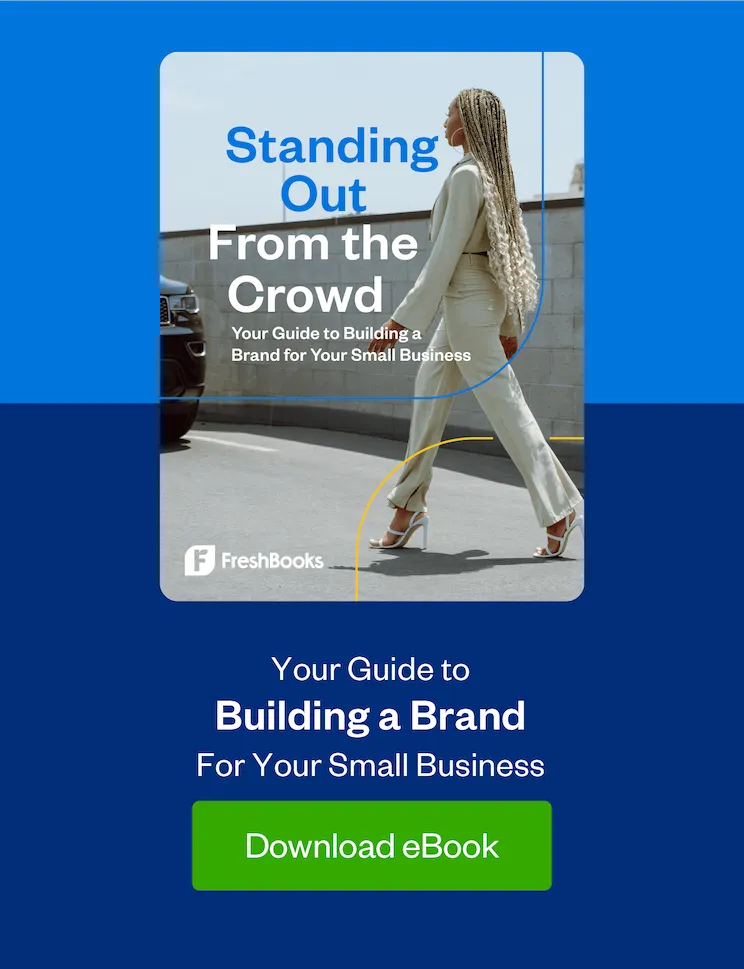It’s ironic that I’ve learned more about running a small business working at FreshBooks than I did when I was myself a freelancer. Here's what I'd do differently...

The truth is, working at FreshBooks has immersed me in the small business world. After all, FreshBooks has skin in the game of small business success (if our customers don’t thrive, neither do we). And as the Content Director here, my focus is on publishing content to help small business owners do just that.
But in a past life, I was a journalist with an active side hustle, freelance writing for different brands and publications. Hindsight, as they say, is 20/20 and now it’s easy to see the things I should have done differently.
But I’m not alone. Many people launch side hustles and small businesses with wide-eyed enthusiasm only to crash in that first year. So, I thought it might be useful to share what I would now do differently…
1. Act Like You’re the Rule, Not the Exception
There are many entrepreneur stories about how a successful CEO/Founder did everything wrong at the start and now is blessed with success. They’re the “I did everything wrong and it turned out grand” stories. And they make compelling reads.
But these stories are the exception. Don’t expect your small business to be the exception.
Expect to be the rule. The rule is that 50% of small business shutter in their five years. The rule is that you’re more likely to succeed if you adopt the right practices rather than if you wing it.
2. Don’t Only Trust Your Own Good Taste
When I freelanced, I thought that my own taste was the ultimate thermometer. Now, I’m not doing a 180 and saying you should completely ignore your own taste; after all, that’s your style and uniqueness.
But I imposed my own personal preferences on everything, from business cards to website, including copywriting, creative and branding. Decision-making around these things wasn’t much more than an innate pulse check.
If I were to get a do-over, I’d develop brand guidelines independent of my own personal taste. Yes, these guidelines would complement my personal taste. But there’d also be separation that would allow me to objectively and strategically view and evolve the business without it becoming so intertwined with my personal identity.
3. Understand Your Customer (They’re Not All Just Like You)
As a writer and editor, I knew always to ask “what’s in it for the reader?” But if you had asked me who the customer was for my freelance work, I would vaguely say something about editors who dug my writing style.
Creating client personas sounds very much like the kind of marketing activity huge companies do when they profile “soccer moms” or “hip downtown condo dwellers”. But it doesn’t have to be so phony. It’s really just a good exercise to get you to understand the different needs and mindsets of people who might hire you.
For example, if you’re a developer who is selling your service to people who aren’t as tech-savvy, you might create personas to understand the key pain-points and benefits for them. In turn, this can then inform your brand guidelines (e.g. “straightforward” might be a key brand value).
Basically, view this as an exercise in empathy. It’s distinctly about your client and not you; these perspectives will help you objectively understand and position your business.
4. Get to Know Your Sales Funnel
If you had mentioned the “sales funnel” when I was freelancing, I would have slow-blinked at you. I understood the concept, but I had no intention of thinking about my business in these terms.
Instead, I envisioned editors stumbling across my work, experiencing a sublime aha! moment of discovery and commissioning something from me on the spot. And that happened sometimes.
But it also happened that one editor followed me on social and took a long time before the opportunity to write the right piece arose. That social courtship was top-of-funnel activity. If I had thought about it in those terms I could have been savvier at cultivating relationships with the editors and publications I ultimately dreamed of writing for.
For any business, it’s important to understand what a typical buying journey looks like. Do most customers buy immediately or do they require a lot of nurturing? Do you have to do things to establish trust and expertise? Is timing a factor? Are you good at attracting first-time customers but struggle with repeat business and loyalty?
Marketing is a bit like plastic surgery: We tend to notice it more when it’s done badly.
These insights will inform so much of what you do—how you design your website, the kind of marketing activities you pursue, the post-purchase follow up you engage in, even the customer service and support you provide.
5. Don’t Be Shy About Marketing
Most small business owners love what they do and it’s often more personal than professional. When you feel this way, marketing can give you the icks.
Here’s how I think about it now: Marketing is a bit like plastic surgery — we tend to notice it more when it’s done badly. And the last thing we want to be is that person who’s shamelessly self-promoting all over social media.
This is a mistake. You don’t have to go full-on Shamwow with your marketing in order to make an impact. But if you think you can be passive and customers will throng to your door, you’re making the mistake of thinking like the exception, not the rule.
There are many different marketing channels to play on: SEO/SEM, social media, content marketing, email marketing, reviews & listings, sponsorships, partnerships, display advertising… it’s about finding that intersection of what’s right for your brand and what reaches your target customer.
6. Embrace All the Roles You Need to Fill
I loved writing. I loved working with talented editors, going back-and-forth until copy was just right. And of course, I adored seeing my byline in a publication I loved. Working hard didn’t feel like “work” because I spent most of my time working on the thing I was already good at: Writing.
However, running a small business usually means filling roles beyond those you’re super-excited about — accountant, customer support specialist, marketer and more… Let’s be honest: It’s highly unlikely you’re going to be equally stoked about all these roles. But you need to find a way to trick yourself into doing exactly that.
Rest assured, there are ways. The right tools will make tasks that give you little pleasure a breeze. Yes, FreshBooks comes to mind here. It’s a shameless plug, but I wish I’d used it when I ran my freelance business instead of trudging along with Excel spreadsheets. To be honest, I didn’t even realize I was going the long way around using Excel…I even prided myself on my fastidious tracking. Now, I just think about all the time that I could have saved.
My advice: Move beyond thinking of yourself as that thing you do (writer, photographer, landscape gardener). Think of yourself as somebody who runs a small business that provides that service. Embrace all that this paradigm shift entails with equal dedication. And equip yourself with the right tools to do it.
If you’re a photographer, you need a camera. If you’re a writer, you need your laptop. If you’re a landscaper, you probably have a hoe… But as a small business owner, you also need tools to send invoices and manage expenses, to manage your marketing, to measure and track your success. Investing in those tools is investing in the health of your whole business… and ultimately that means you get to keep doing what you love.
about the author
Jane Flanagan is the Senior Director, Content & Creative Services at FreshBooks.

 Empathy: The Secret Ingredient to Business Success
Empathy: The Secret Ingredient to Business Success






